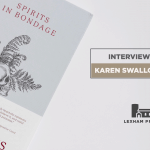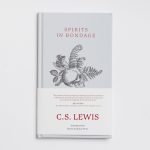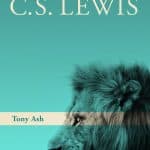
Spirits in Bondage is a work of literary, intellectual, and spiritual immaturity—and promise. Published in 1919 under the pseudonym Clive Hamilton (C. S. Lewis’s first name and his deceased mother’s maiden name), Spirits in Bondage was his first published work and thus provides important insights into the artist as a young man—a young man who would become one of the most read and revered of modern Christian writers. To the reader familiar only with his prose, written at a time of greater personal and artistic maturity, this volume of poems will seem at once familiar and strange—familiar with faeries, satyrs, and talking animals and yet strange because of the unbelief, despair, and bitterness that pervade the poems.
Only 20 years old when the book was published, Lewis was an atheist during this time, as he would later recount in Surprised by Joy. The story of Lewis’s conversion—which occurred twelve years after the publication of this work—is well known: raised within a Christian context, Lewis embraced atheism as a teen, eventually returned to theism, and then—in 1931, when he was 32 years old, under the influence of his friend J. R. R. Tolkien—became a genuine if reluctant convert to Christianity. Reading these poems in retrospect, it is difficult not to see in them a deep longing for transcendence despite their repeated declarations of unbelief.
The dark mood that prevails in the collection is hardly surprising, given the circumstances in which they were written. Many of the poems were written or revised during the year Lewis spent in the trenches of World War I in France and during his recovery from injuries sustained there. The last poem in the collection, “Death in Battle,” would have served as Lewis’s farewell had he not survived the war.
All art reflects something of the artist, but because of its compressed, intense, expressive language, poetry reveals more of the writer’s heart and soul (particularly in the modern era, when poetry became less communal and more subjective, reflecting individual experience and perception). Spirits in Bondage reveals a budding scholar interacting with early influences on his thought, a youthful writer flexing his developing literary muscle, and an unbeliever grappling with the problem of evil while longing for something in which to believe. Poetry is a fit medium for such seeking because the language of poetry—resonant, symbolic, layered—by its very nature points to something beyond the empty, literal, and flat. Poetic language both suggests and is what Lewis was looking for: the union of material and spiritual, immanent and transcendent.
This post is adapted from Karen Swallow Prior’s introduction to Spirits in Bondage: A Cycle of Lyrics by C. S. Lewis (Lexham Press, 2020).







